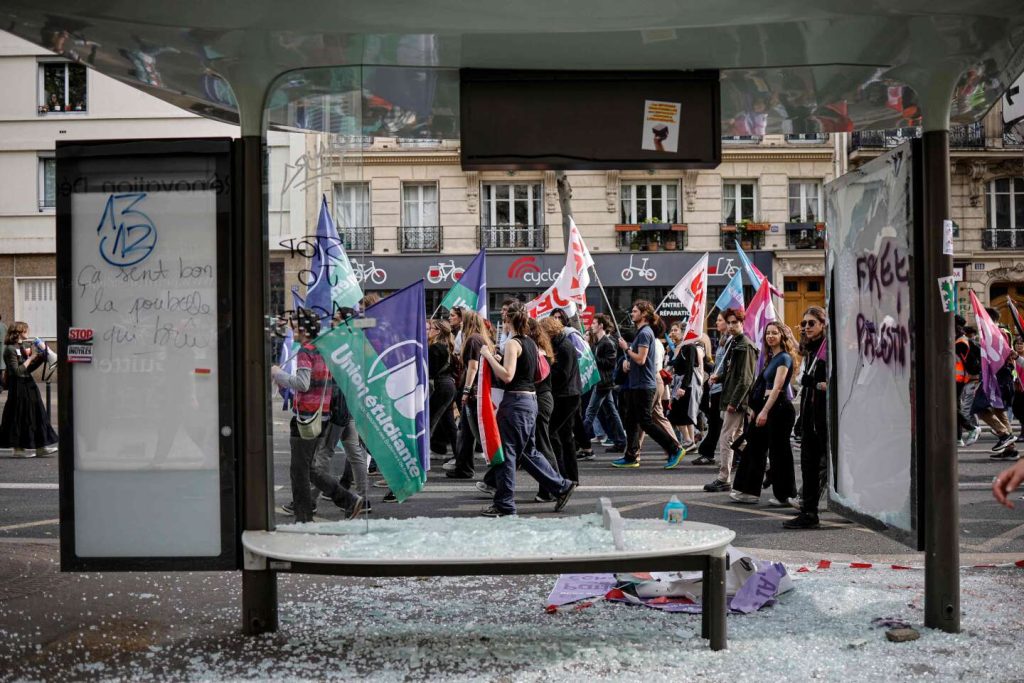According to the Ministry of the Interior, 121,000 people demonstrated in France on May 1, during the International Workers’ Day. The CGT union, on the other hand, counted more than 210,000 protesters. The main issues at the heart of the demonstrations included salaries, peace in Gaza, and calls for a more protective Europe. In Paris, there were conflicting reports on the number of protesters, with the unions estimating 50,000 and the police estimating 18,000. There were reports of tensions in the beginning of the march when some individuals allegedly tried to damage a store, but were stopped by law enforcement.
Despite the protests, the police maintain that immediate intervention prevented any major incidents from occurring. Earlier in the day, in Saint-Etienne, Raphaël Glucksmann was prevented from joining the march. The video service provided by Le Monde, with contributions from AFP and Reuters, has captured some of the events that took place during the protests. Please note that the commenting section is reserved for subscribers. Subscribe to participate in discussions and provide your input on the topic at hand.
Overall, the May 1 demonstrations in France were a reflection of the ongoing social and political issues facing the country and the rest of Europe. The focus on issues such as salaries, peace in Gaza, and demands for a more protective Europe underscores the concerns and demands of the working class and those advocating for social justice. The conflicting reports on the number of protesters in Paris and the alleged incidents of tensions during the march highlight the complexities and challenges of organizing and participating in large-scale demonstrations.
The differing perspectives of the unions and the police on the number of protesters and the events that took place during the May 1 demonstrations also point to the discord and lack of consensus in society. Despite the disagreements and potential conflicts, the right to peaceful assembly and freedom of expression remain fundamental rights in democratic societies such as France. It is essential for authorities, protesters, and the general public to engage in constructive dialogue and find common ground to address the issues raised during the demonstrations.
As the debate continues and the calls for social, economic, and political reforms persist, it is crucial for all stakeholders to listen to each other’s perspectives and work towards finding equitable solutions. The challenges faced by workers, activists, and marginalized communities require a collective effort to address systemic inequalities and promote a more just and inclusive society. Moving forward, it is essential for policymakers, civil society organizations, and the general public to engage in meaningful discussions and take concrete actions to address the root causes of social injustice and discrimination.
The May 1 protests in France serve as a reminder of the importance of solidarity, activism, and civic engagement in shaping the future of the country and advancing social progress. The diverse voices and demands of the demonstrators reflect a desire for change and a commitment to building a more equitable and sustainable society. By amplifying these voices and collectively working towards a common goal, France and other nations can create a more just and inclusive society for all.


